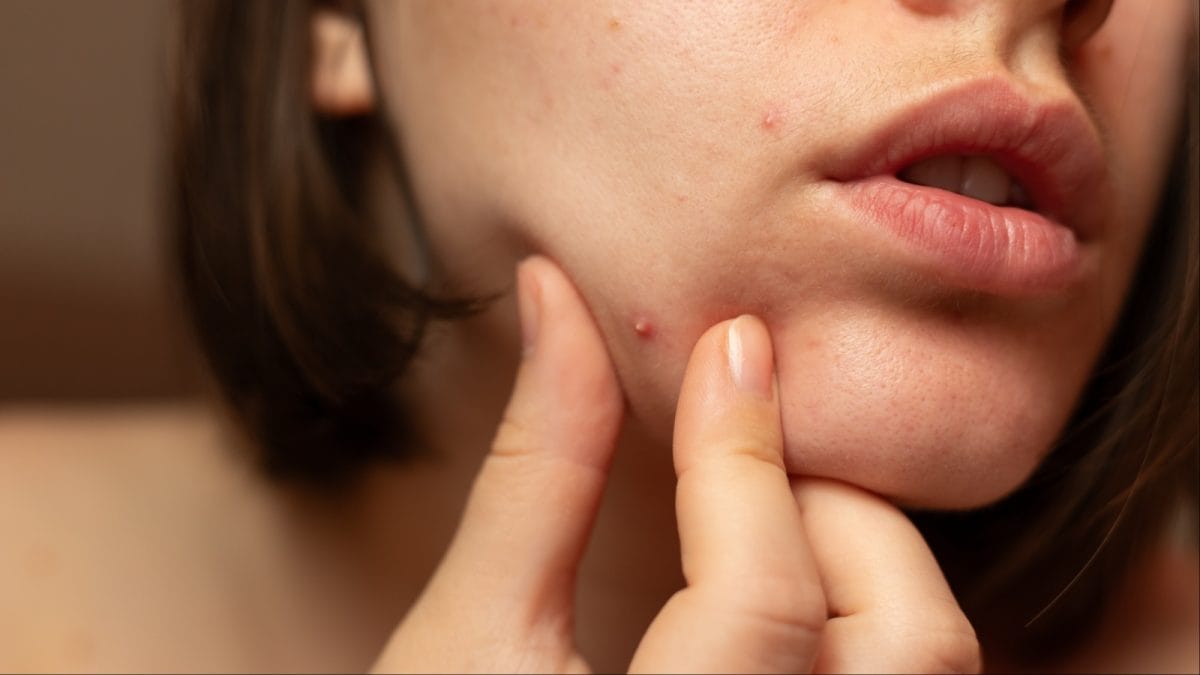Last Updated:
Changes in skin and hair due to PCOS reflect hormonal and metabolic imbalances, not just cosmetic issues.

PCOS affects skin and hair due to hormonal imbalances.
For many women, acne that won’t clear, sudden hair thinning, and unwanted facial hair feel like purely cosmetic problems. But these visible signs are often the body’s way of signalling deeper issues. Polycystic Ovary Syndrome (PCOS) affects millions of women globally and manifests not only in the ovaries but also through skin and hair changes. Recognising these symptoms early can prevent long-term complications and improve overall well-being.
Experts Explain The Impact Of PCOS On Skin And Hair
Recommended Stories
“PCOS affects millions of women, and it shows up not just in the ovaries, but on the skin and scalp too,” says Dr. Rashmi Naldeega, Consultant Dermatologist at Practo. Acne, hirsutism, and hair thinning are clinical manifestations of underlying hormonal imbalances, not just cosmetic issues. Studies in India show over 70% of women with PCOS report acne or excess hair growth, while more than half exhibit signs of insulin resistance. “Without treating the hormonal and metabolic imbalances, results are short-lived,” she adds.
Dr. Sneha Shetty, Clinical Director at Vriksh Fertility, Consultant at Practo, highlights that many young women are unaware that persistent acne, hair loss, weight gain, or missed periods may indicate PCOS. “PCOS is not just a fertility problem. It affects nearly every aspect of a woman’s life, including confidence and relationships,” she notes. Awareness and early intervention are key to reclaiming health and quality of life.
A Holistic Approach to Management
Addressing PCOS requires care from multiple angles:
- Medical treatment: Hormonal therapy, anti-androgens, and insulin sensitisers target root causes.
- Lifestyle adjustments: Balanced diet, regular exercise, weight management, stress reduction, and adequate sleep can significantly lower androgen levels. Even a 5–10% weight loss shows measurable improvement.
- Dermatologic support: Targeted treatments for skin and hair, such as medical-grade topicals, laser hair removal for hirsutism, or topical minoxidil for hair thinning, help manage visible symptoms. Early detection of insulin resistance through signs like acanthosis nigricans is also crucial.
Dr. Naldeega emphasises that multidisciplinary care involving dermatologists, endocrinologists, and gynaecologists is essential. Dr. Shetty adds that lifestyle changes combined with medical guidance can transform years of frustration into hope and control.
Moving Beyond Stigma
Support and awareness, both from healthcare providers and families, are critical. “Every woman deserves to live her life to the fullest without being constrained by PCOS,” Dr. Shetty says. Open conversations and early interventions can prevent unnecessary anxiety and help women take charge of their health.
Skin and hair changes in PCOS are not merely cosmetic. They reflect underlying hormonal and metabolic imbalances. Holistic care that combines medical treatment, lifestyle modifications, and dermatologic support offers the best path to lasting results.
Delhi, India, India
September 27, 2025, 12:57 IST
Loading comments…
Go to Source
Author: News18



